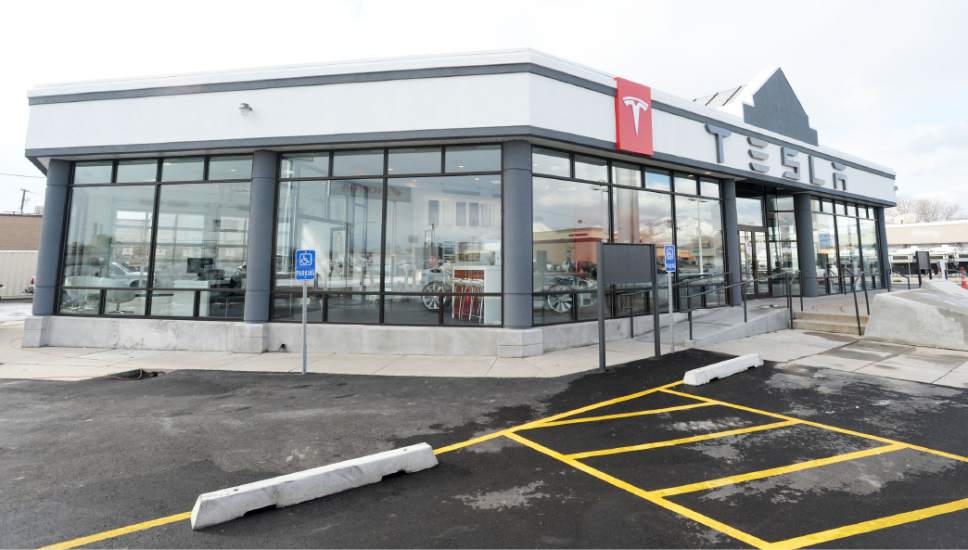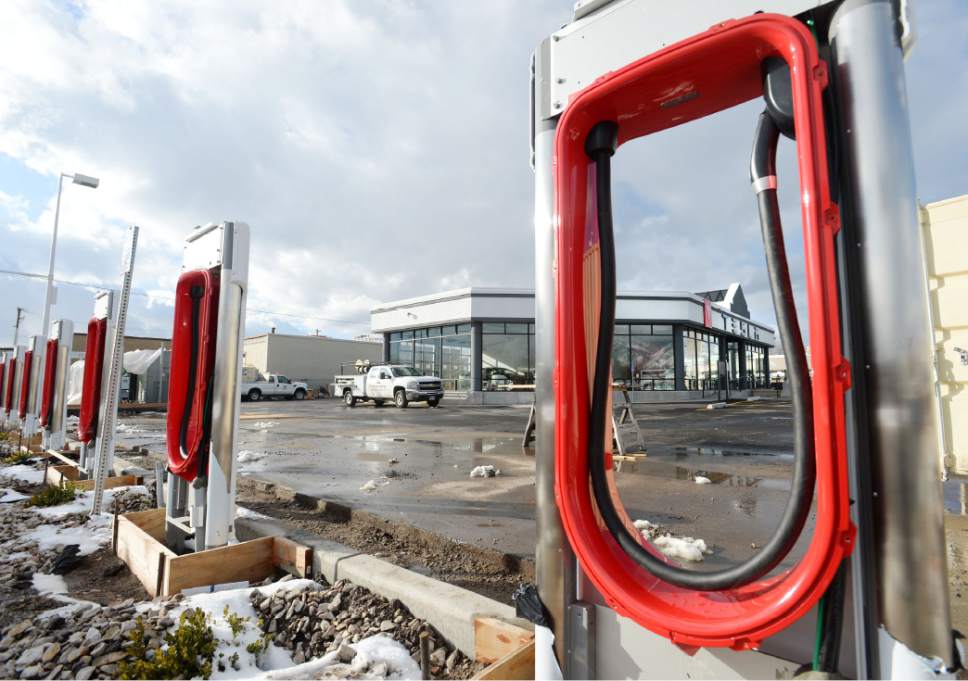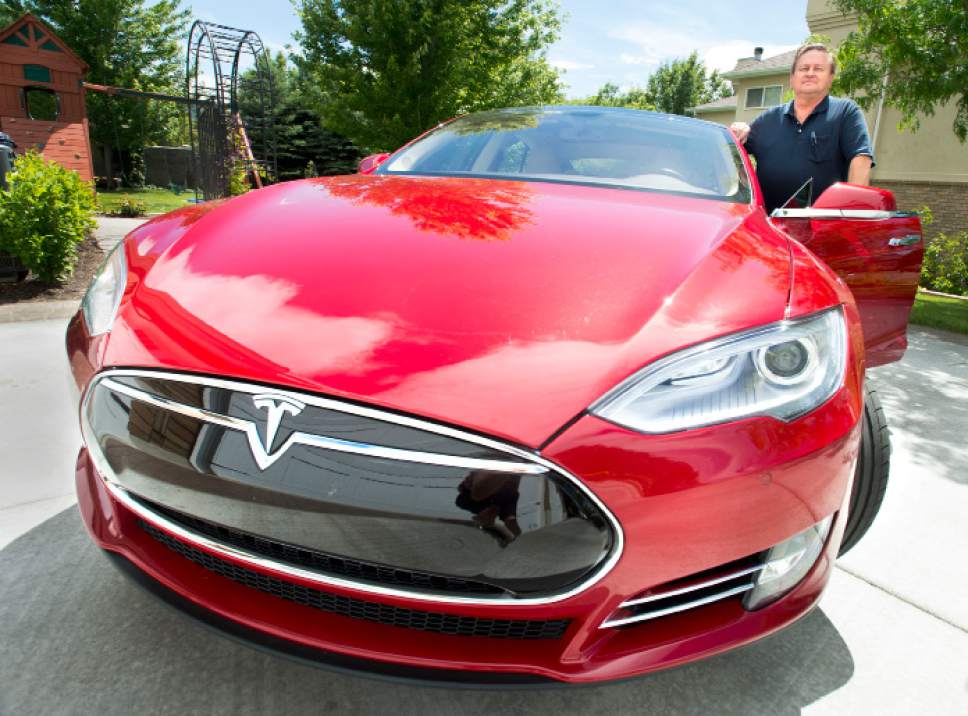This is an archived article that was published on sltrib.com in 2017, and information in the article may be outdated. It is provided only for personal research purposes and may not be reprinted.
In a 5-0 decision, the Utah Supreme Court upheld a state law that prohibits the electric automaker Tesla Motors from selling cars through a subsidiary to Utah consumers.
The ruling is a setback for the California company that had created a subsidiary called Tesla UT, opened a store in Salt Lake City and sought licenses to sell its stylistic vehicles here.
But it is a victory for Utah new-car sellers who battled to uphold a state law that prohibits auto manufacturers from owning dealerships.
The court issued what it called a "narrow, legal decision" that did not pronounce on "broad policy questions" presented in Tesla's appeal, such as whether Utah consumers "would be better off with direct access to the innovative vehicles offered by Tesla."
Instead, the court ruled that the state constitution does not override regulators' interpretations of the Franchise Act that prohibits an auto manufacturer from having an ownership interest in a new vehicle dealer.
"The Utah ruling is disappointing for Tesla and all Utah consumers interested in consumer choice, free markets, and sustainable energy," a company spokesman said in an email to The Salt Lake Tribune. "We will pursue all options to ensure that Tesla can operate in Utah without restriction. In the meantime, we will continue to provide service and limited sales activities (through our used car license) at our location in South Salt Lake."
The opinion was authored by Associate Chief Justice Thomas Lee, who wrote that Tesla UT was trying to get around the language of the Utah statute by arguing it was protecting auto dealers from competition.
"The reach and breadth of our laws are measured by the words that were voted on by the Legislature and signed into law by the governor — not the general function or purpose we may ascribe to the law in retrospect," the court said.
In February 2015, Tesla UT applied for a license to sell vehicles at its Salt Lake City store. Its application was turned down by a division of the Utah State Tax Commission that found Tesla UT did not have a franchise to sell vehicles here.
Tesla UT then entered into an agreement with the parent company to try to create a franchise under Utah law, but it was again turned back for a license. Tesla appealed to the Tax Commission, which upheld the decision because it said under Utah law, Tesla couldn't have a financial interest in the franchise.
The Supreme Court decision did leave open a possible door for Tesla to sell directly to Utah consumers. The opinion said justices were not ruling on whether Tesla itself is barred from obtaining a license to sell new vehicles.
The Utah Auto Dealers Association did not immediately respond to a request for comment.
Attempts were made in 2015 and 2016 to change Utah law to accommodate Tesla, but the car dealers and other automakers rebuffed the efforts.
On Monday, Tesla shares rose about $20 to $298.52 on the Nasdaq exchange after a weekend report showed it delivered 25,000 vehicles in the first quarter of 2017, a 69 percent increase over the same period last year.
The higher share price valued the company at $46.6 billion — more than Ford Motor Co.







